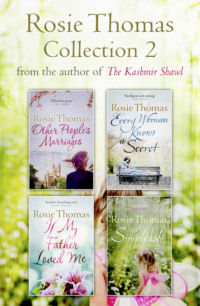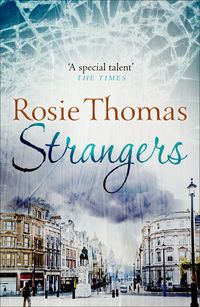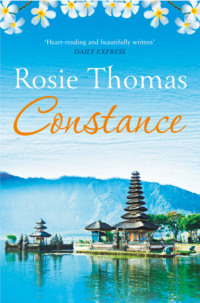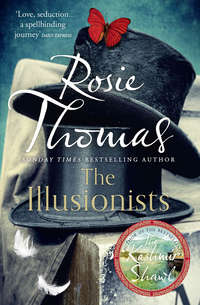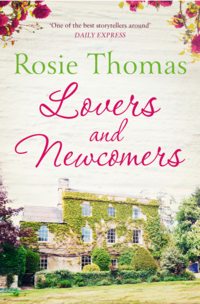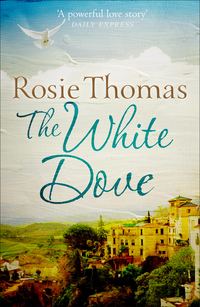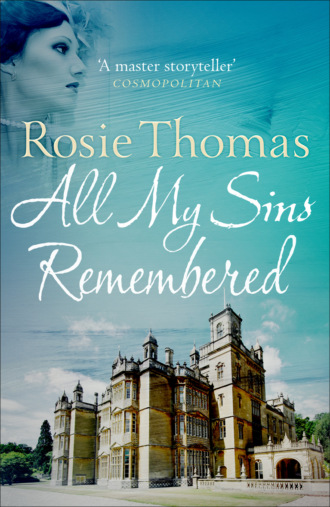
All My Sins Remembered
They learned quickly, together.
Eleanor had been ashamed, at first, of the way her body led her. She had believed that she should be passive and reticent, and meekly let Nathaniel do whatever it was he needed to do to her. But then she had discovered another Eleanor within herself, this Eleanor who would not be subdued except by what her husband did. It was not a matter of allowing him, as she had imagined, but of meeting him halfway. Sometimes, to Nathaniel’s delight, it was more than halfway. Then she heard the other Eleanor scream out in the intensity of her response.
She had been ashamed until Nathaniel told her that there was nothing they could do together, in the seclusion of her bed, that was either wrong or unnatural. She believed him, as she believed everything he said.
‘Come back soon,’ Nathaniel whispered, when he had installed her trunk and boxes in the train with their little Iffley housemaid who would be her lady’s maid at Stretton. ‘I wish I was coming with you.’
He did wish it. He liked to see his wife and her twin sister together. The double vision intensified his pleasure in the secret Eleanor known only to him, as well as tantalizing him with a sense of the other secrets the sisters shared only with each other. He thought, sometimes, of what it would be like to have the two of them together …
‘That would be quite unsuitable,’ Eleanor rebuked him. ‘This is a time for women.’
‘Not when my children are born. You won’t banish me then.’
‘You will have to wait and see what happens when the time comes, Nathaniel.’
The train was on the point of departure. Eleanor smiled up at him from under the brim of her feathered hat. She suspected that they would not have so very long to wait.
‘Come back soon,’ he ordered her. ‘I didn’t marry you to have to spend more than a day without you.’
‘I will,’ she promised him. ‘As soon as I’m sure Blanche doesn’t need me any longer.’
Nathaniel stood on the platform waving until the train was out of sight. At Shrewsbury, Lord Leominster’s groom was waiting with the carriage to drive Eleanor to Stretton.
The approach to the house was by a winding carriage drive through the trees of the park. By this time Eleanor was familiar enough with the view to be ready for the sight of Stretton itself, but the size of it still made her catch her breath at the first glimpse. The trees suddenly gave way to reveal a lake and a bridge and the house standing on a vast slope of grass beyond the water.
The original house was very old, but in the eighteenth century an ambitious Earl had commissioned Robert Adam to extend it and impose the appropriate grandeur on the south front. Now two short wings curved outwards from the main body and a dome had been added to crown the new composition. The centrepiece of this symmetrical arrangement was a porch raised on eight stone pillars, reached by a pair of stone staircases that rose from the gravelled drive. The effect was magnificent, but the Leominster fortunes had never properly recovered from the expense.
The comparison of Stretton’s creamy stone bulk with her cottage at Iffley made Eleanor smile a little as she was handed down at the porch steps.
The butler who swept down to meet her assured her that her ladyship was waiting anxiously upstairs. Eleanor almost ran in his stately wake. She found Blanche in the doorway of her own small drawing room on the first floor, and the sisters fell into each other’s arms.
‘You look so well, and pretty,’ Eleanor exclaimed when they were alone. Blanche did look well, dressed in a loose blue robe that almost hid her bulk. She rested one hand proudly on the summit of it.
‘Sir John says that it will be any day.’ Sir John Williams was her obstetrician. ‘I wish it would come.’
‘And this is so cosy.’ Eleanor walked admiringly round the room. It was decorated in pale blue and eau-de-nil, with watercolour landscapes on the panelled walls. It was new since her last visit, and she thought how well it suited Blanche. The Adam interiors of the rest of the house were very fine, but they had been left untouched for a hundred years. The fabrics were beginning to decay, and there was an air of chilly gloom.
‘John ordered it for me. It is so comfortable to have somewhere pretty and warm to sit. I spend all my days in here. Oh, Eleanor, how glad I am that you are here.’ Blanche sat down on her blue sofa and patted the place beside her. ‘Let me look properly at you.’ With her head on one side, she examined her sister’s face. She saw contentment in every line of it, and something else too. There was a richness, a new lustre that she had not seen before.
‘And I can see that you are well.’
Eleanor smiled. ‘I don’t feel so very magnificent. I suffer from sickness. I believe … Blanchie, I haven’t even told Nathaniel yet, but I think I may be in the same condition as you are.’
After hugging and exclaiming, the sisters sat back to look at one another again. They felt that as married women, both carrying children, there were matters to be discussed that they could not have touched on before, for all their closeness.
Blanche said delicately, ‘Tell me, Eleanor, how do you find the married part of marriage?’ She saw that her sister’s mouth looked fuller than it had been, and her eyes were soft. There was colour warming her neck and cheeks.
‘Surprising, at first,’ Eleanor said. And then, laughing, ‘But afterwards, like … finding out the answer to a riddle. A rather good riddle, with a particularly satisfying solution.’
‘A riddle?’ Blanche was staring at her, uncomprehending.
‘Yes, just that. One that you have half overheard, and never understood before. And you?’
‘John is very good,’ Blanche answered, aware that it was no answer, any more than Eleanor’s had seemed. But John was good, she told herself. He did not trouble her so very often, and when he did materialize in her bedroom, sliding in in the darkness to lie briefly on top of her, he seemed so insubstantial, so thin and light that she wondered if he was completely there. Afterwards he would whisper to her, ‘I’m sorry, my dear. Will you forgive me?’
Blanche had no idea why her forgiveness should be necessary, because she had not felt particularly violated, but she gave it readily. She was fond of her husband, and recognized his kindness.
After waiting a moment, Eleanor realized that Blanche would say no more. She murmured, ‘Yes. I’m sure he is.’ She was remembering the letter she had started to write to Blanche on the night of meeting Nathaniel. She had known then that it was not the right thing to finish and post it.
Eleanor stood up and went to Blanche. She kissed the top of her head, in the middle where the dark hair parted to reveal the white skin beneath. Then she wandered to the window, and looked down at the wide park.
‘Will the baby be an heir for John and all this?’
‘I am quite sure it is a boy, and so is John,’ Blanche said composedly.
Blanche’s son was born a week later, and named Hugo John. By family tradition he took his father’s second title, Viscount Culmington.
It was an easy, uncomplicated birth. Eleanor stayed with her sister until she was well enough to leave her rooms, and then she travelled back to Nathaniel with her own news.
Seven months later, in April 1898, Jacob Nathaniel Hirsh was born in Oxford, arriving as quickly and easily as his cousin Hugo had done.
Before his son’s birth Nathaniel had found the family house he had always intended to own. It was to the north of city, in the Woodstock Road, in the heart of an area of solid new houses colonized by the first generation of University dons who were allowed to marry and live outside their colleges. It was a tall red-brick building that reared up from its newly planted garden and loomed over the quiet road like a Gothic castle in miniature. There were arched windows at a dozen different levels, doors in unexpected recesses and a round turret topped off with its own pinnacle of purplish slate. Inside there was a good deal of stained glass and polished mahogany, and short flights of shallow stairs leading from one mystifying level to the next. It had ten inconveniently sited bedrooms and only one bathroom; it cost much more money than they could afford; and Eleanor and Nathaniel both loved it.
The new house stood on an oddly shaped three-quarters of an acre plot, which Eleanor claimed at once as her own with the garden at Fernhaugh as her model. By the time Jacob was born, she felt her house and her garden fitting around her as comfortably as a shell enclosing an oyster. She told Nathaniel that he had better find that it suited him too, because she had no intention of ever living anywhere else.
‘It is too big,’ Nathaniel protested. ‘All these rooms, just for us and Jakie and his nurse and a couple of maids. We need more children, Eleanor. We need to fill up the house. I want a dozen children, a whole team, a chamber orchestra.’
Eleanor laughed at him. ‘A dozen? How will we feed them all?’
The Hirshes had very little money.
‘Leave that to me. I shall be Professor Hirsh before you know it.’
Eleanor didn’t doubt it. She was proud of her husband’s growing academic reputation, and she was glad to see the students who began to flock to their house to hear him talk.
‘A chamber orchestra it shall be then,’ she agreed with mock obedience. Nathaniel loved music almost as much as he loved books.
In the next year Eleanor made a long summer visit to Stretton, taking Jake with her, and the sisters sat tranquilly in the shade of Capability Brown’s trees with their babies beside them. Blanche came to Oxford in her turn, and discovered how much she enjoyed the Hirshes’ unconventional domestic life after the formalities of Stretton. Eleanor often forgot to order food; the Irish cook was no more reliable; Nathaniel could turn up with two or twenty hungry undergraduates at any hour of the day; but the odd corners of the red-brick miniature castle were full of the twins’ laughter all through Blanche’s visit.
Their only regret was that their husbands would never be friends. John Leominster was courteous, but he clearly regarded Nathaniel as a dangerous barbarian. And where Eleanor had made gentle fun of her brother-in-law, Nathaniel’s jokes were sharper, rooted in his mistrust of the English aristocracy itself. But both men liked to see their sisters-in-law, and Eleanor and Blanche contented themselves with that much.
Towards the end of 1900, when Jake was well out of babyhood and Nathaniel was beginning to be anxious and impatient, Eleanor discovered that she was expecting another child. Her husband’s delight at the news touched her deeply, and she remembered his wish to be the father to an entire orchestra. She could only be pleased for Nathaniel’s sake when her doctor told her a little later that she should prepare for twins. The news was no great surprise. There were generations of twins in the Earley family.
‘Twins!’ Nathaniel exclaimed. ‘A pair of violinists for the Bach Double Concerto.’ Eleanor had never seen him look so happy.
‘And two more children to read their way through some of these books. Jake will never manage it alone,’ she told him.
An added satisfaction was that Blanche was pregnant again too.
The weeks of the second pregnancy passed slowly. Eleanor grew so large that she could hardly move. She sat in her garden through the spring and into the early summer, watching Jake play and waiting for news from Blanche, whose confinement was expected before her own.
Then, early in the morning of Midsummer’s Day 1901, almost a month before she had expected it, Eleanor went into labour. The twins, a black-haired boy and girl, were born that afternoon within fifteen minutes of each other. They were small babies, but perfectly healthy. Nathaniel knelt by his wife’s bedside, crying tears of gratitude.
That evening, the news reached the Woodstock Road that Blanche had given birth to a daughter. She had been born at midday, two hours before the Hirsh twins, at the Leominsters’ town house in Belgrave Square.
All three deliveries had been quick and uncomplicated once again. Unlike poor Constance, the Holborough girls with their stately, ample figures were excellent breeders.
Eleanor lay weakly back against her pillows, half dazed with exhaustion and relief and happiness. ‘I can’t believe it,’ she said, over and over again. ‘My daughter, and Blanche’s, born on the very same day.’
‘You don’t have to believe anything,’ Nathaniel said sternly. ‘Rest is all you have to do.’
The three babies were christened together at the house in Belgrave Square. The girls were given each other’s names, as well as their aunts’ and the new Queen’s. Their mothers had no doubt that their old communion would be passed on to the new generation. Lady Grace Eleanor Alexandra Clio Stretton and Miss Clio Blanche Alexandra Grace Hirsh would share everything that their mothers had shared. Julius Edward, the real twin, was after all a boy, and boys were different.
‘They will be more than friends and more than sisters,’ Blanche said, leaning over the cradles to look at the tiny faces.
‘Twins,’ Eleanor answered, her voice full of affection. ‘Like us.’
Конец ознакомительного фрагмента.
Текст предоставлен ООО «ЛитРес».
Прочитайте эту книгу целиком, купив полную легальную версию на ЛитРес.
Безопасно оплатить книгу можно банковской картой Visa, MasterCard, Maestro, со счета мобильного телефона, с платежного терминала, в салоне МТС или Связной, через PayPal, WebMoney, Яндекс.Деньги, QIWI Кошелек, бонусными картами или другим удобным Вам способом.
Приобретайте полный текст книги у нашего партнера:


